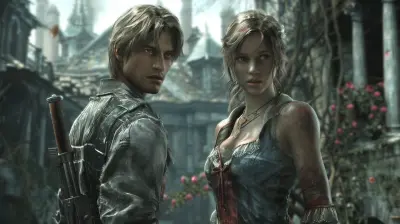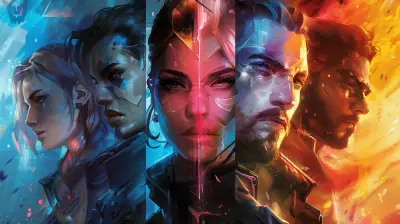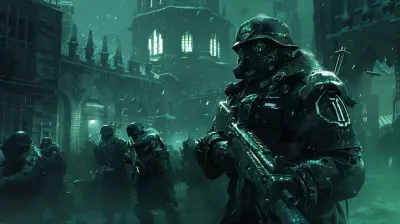The Legacy of Point-and-Click Adventures Like Monkey Island
19 November 2025
If you’ve ever clicked your way through a quirky pirate tale or puzzled over a rubber chicken with a pulley in the middle, there’s a good chance you’ve been touched by the legacy of point-and-click adventure games—especially the unforgettable _Monkey Island_ series.
These games weren’t just about solving puzzles or collecting inventory items. They were entire worlds wrapped in dialogue, humor, charm, and mystery. From pixelated shores to deep emotional narratives, point-and-click adventures have carved their own treasured path through gaming history.
Let’s take a deep dive into how titles like _Monkey Island_ shaped the genre, changed storytelling in video games, and still influence modern titles today. Buckle up, grab your mouse, and let’s go on a nostalgic trip with a fresh perspective.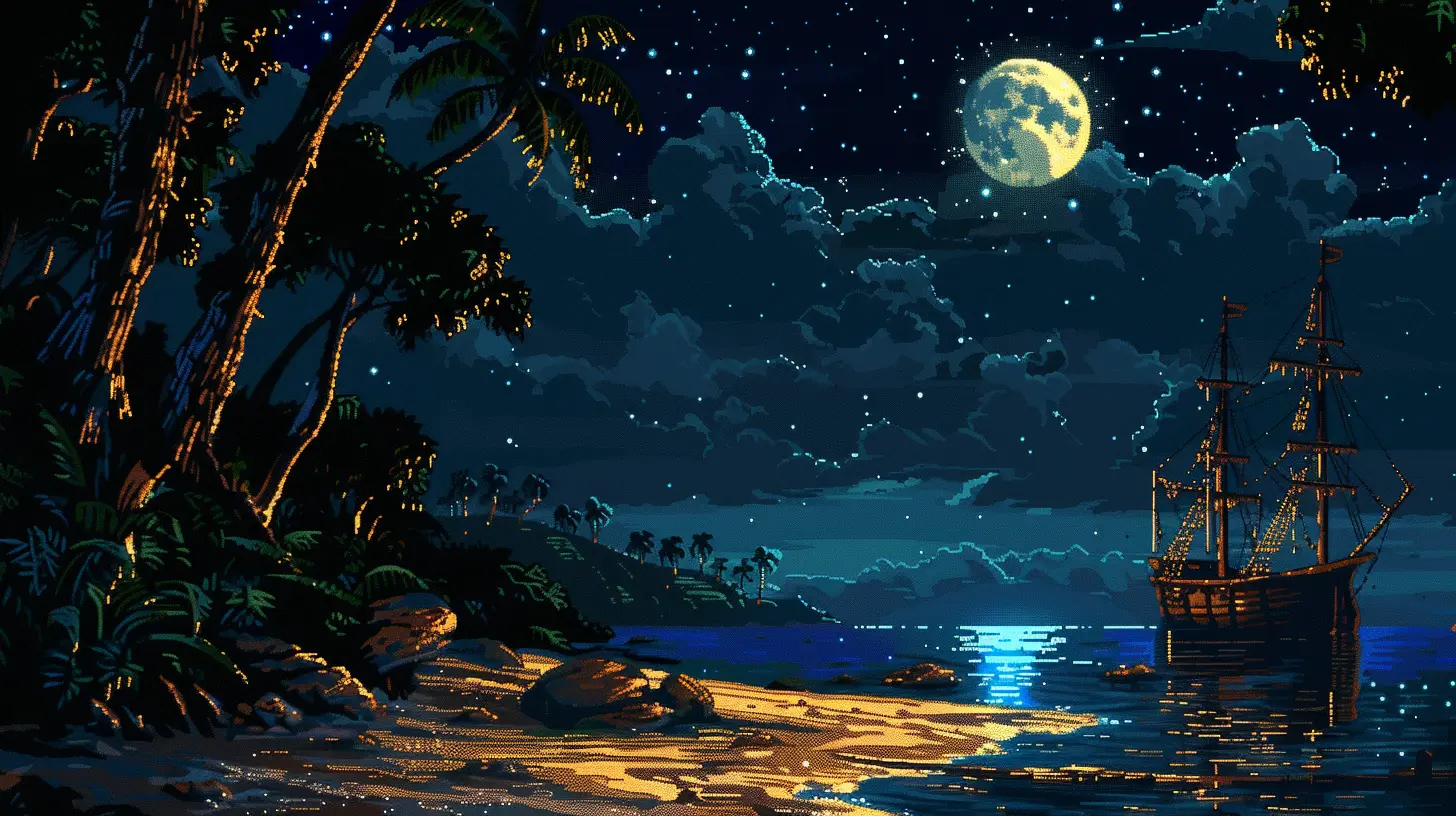
What Exactly Is a Point-and-Click Adventure?
Before we relive the glory days, let’s clarify what we’re talking about. A point-and-click adventure game is pretty much what it sounds like. You interact with the environment by pointing and clicking. You move your character around, pick up objects, have conversations, and most importantly—solve puzzles.These games are often slower-paced, focusing more on logic, dialogue, and story than fast reflexes. Back in the late ’80s and early ’90s, when graphical leaps were just beginning, this genre became a beloved staple—thanks mostly to developers like LucasArts and Sierra On-Line.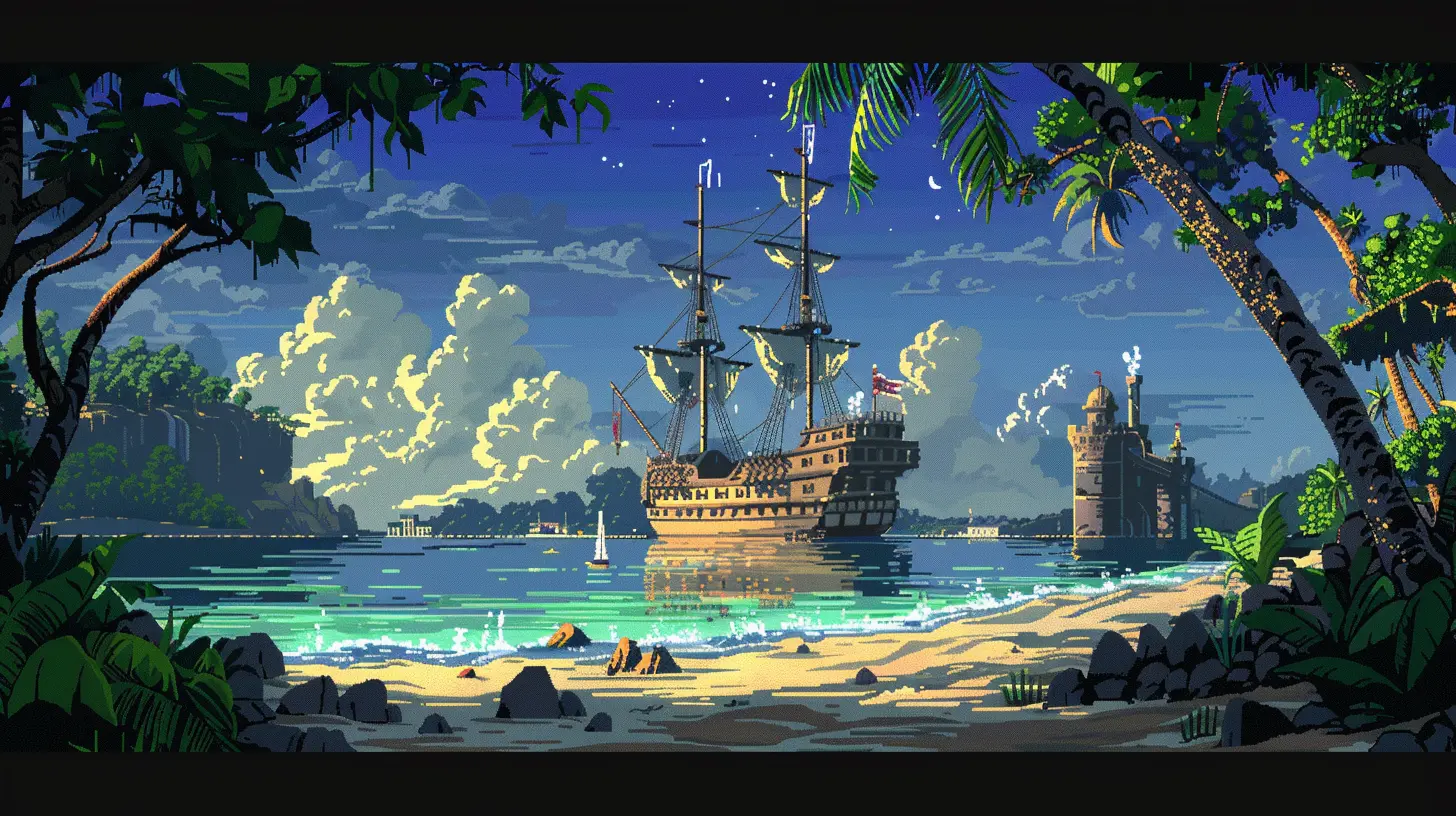
The Rise of Monkey Island: Pirates, Puns, and Puzzle-Solving
Let’s get real—no point-and-click conversation is complete without mentioning _The Secret of Monkey Island_. Released in 1990 by Lucasfilm Games (which later became LucasArts), Monkey Island wasn’t the first point-and-click adventure, but it redefined what the genre could be.Meet Guybrush Threepwood
The game introduced us to Guybrush Threepwood, a charmingly clueless wannabe pirate. From the start, it was clear this wasn’t your average treasure-hunting expedition. The humor? On point. The characters? Memorable. The puzzles? Maddening, but always clever.Monkey Island wasn’t just about solving problems—it was about experiencing a wonderfully weird world filled with ghost pirates, insult sword fighting (yes, that’s a thing), and talking skulls.
Humor as a Storytelling Tool
Before Monkey Island, most games took themselves way too seriously. But the minds behind Monkey Island—Ron Gilbert, Tim Schafer, and Dave Grossman—brought in snappy dialogue, sarcasm, and surreal situations. It proved that games could be laugh-out-loud funny and still deeply immersive.Humor became a tool, not just an afterthought. And man, did it work.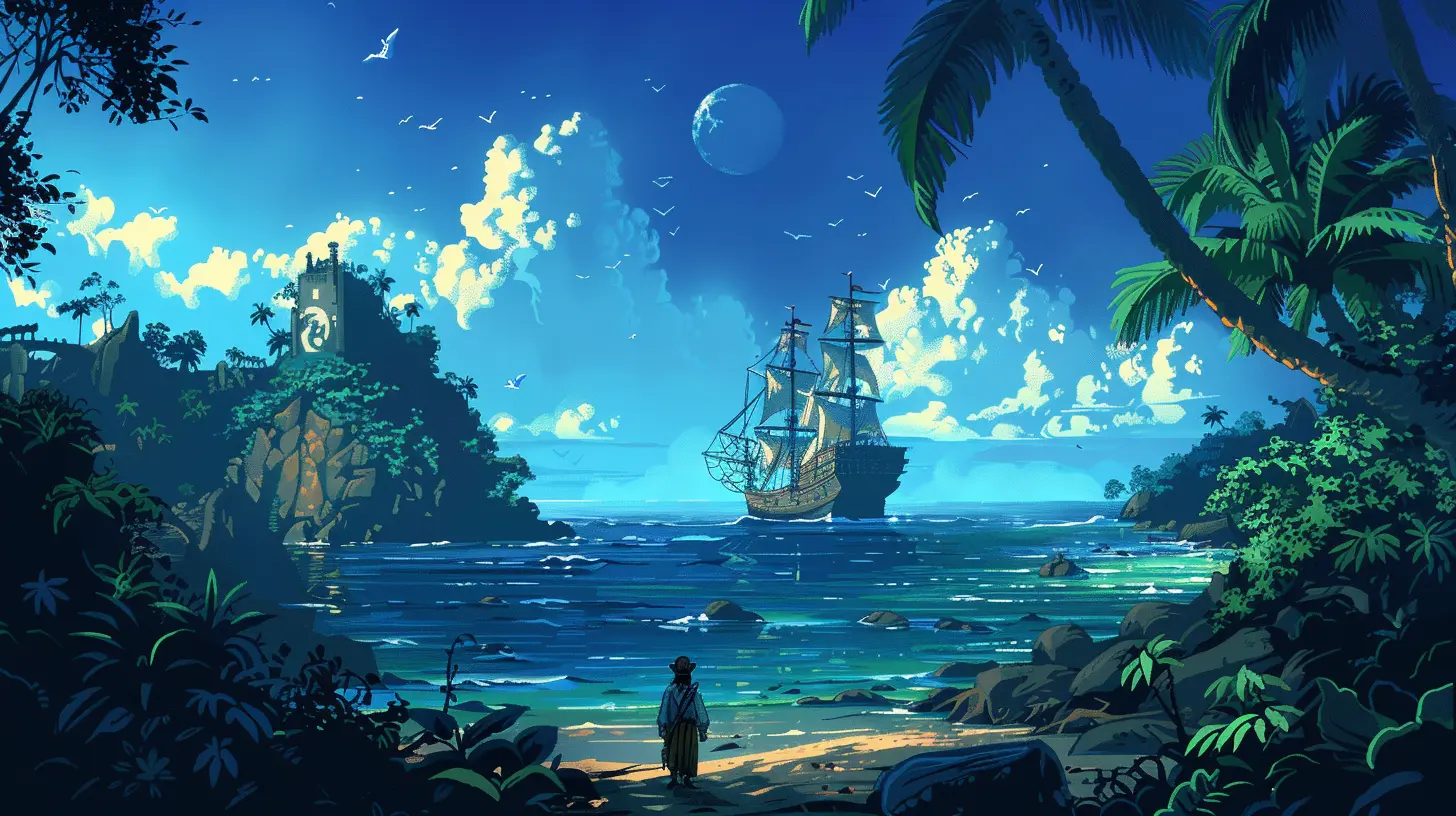
A Design Philosophy That Still Holds Up
The “No Dead Ends” Rule
One of Monkey Island’s core philosophies was that players shouldn’t be punished too harshly. You wouldn’t die randomly or hit dead-ends that made you start the whole game over (looking at you, Sierra games).That approach actually encouraged exploration and experimentation. It turned solving puzzles into a creative experience rather than a frustrating one. That design principle echoed throughout the industry and made its way into modern games that prioritize player freedom and fun over punishing difficulty.
VERBs and Interfaces
You may remember the archaic (yet charming) interface of classic point-and-click games. A row of verbs like “Pick up,” “Talk to,” or “Push” would line up at the bottom of the screen. It made things feel almost like a playable sentence.That simple system actually engaged players in critical thinking and language-based interaction—something that feels significantly different from today’s button-mashing or dialogue wheels.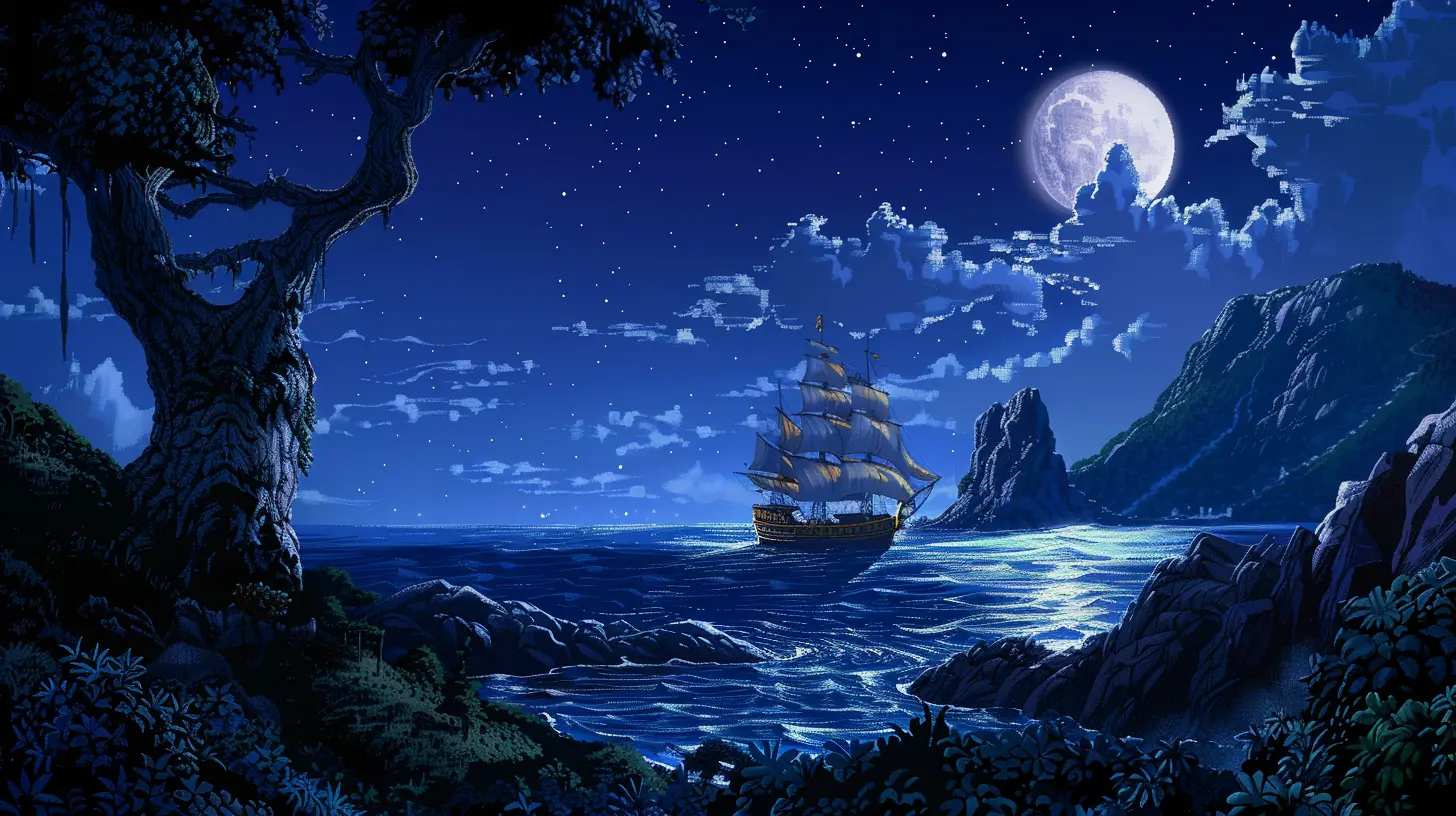
Expanding the Genre: Beyond Monkey Island
While Monkey Island set the gold standard, it wasn’t alone. Sierra’s _King’s Quest_, Revolution Software’s _Broken Sword_, and LucasArts' own _Grim Fandango_ pushed the envelope.Each game added its own flavor:
- _King’s Quest_ dabbled in fairy tales.
- _Broken Sword_ brought in conspiracy theories and historical mysteries.
- _Grim Fandango_ fused film noir with Día de los Muertos aesthetics.
These games showed that the genre was surprisingly versatile. It could be funny, dark, emotional, or absurd—all while sticking to the core mechanics of pointing and clicking.
The Decline: When 3D Took Over
Let’s be honest—point-and-click adventures didn’t age gracefully into the early 2000s. As 3D graphics became the big trend and action-heavy genres skyrocketed in popularity, these dialogue-heavy, puzzle-centric games seemed outdated.Developers struggled to adapt. Some tried to integrate 3D elements; others abandoned the genre entirely.
The average gamer had little patience for slow burn games when shooters and RPGs were exploding with visuals, mechanics, and adrenaline.
The Comeback Nobody Saw Coming
But like any good pirate tale, the genre didn’t die—it just went underground. And then… it made a comeback.Telltale Games and the Episodic Revolution
Telltale Games breathed fresh life into the point-and-click formula with titles like _The Walking Dead_, _The Wolf Among Us_, and _Tales from the Borderlands_. While the interface became more streamlined, the soul of the genre stayed intact: emotional stories, impactful decisions, and subtle puzzles.And you know what? Players noticed. Suddenly, narrative-driven games were cool again.
Telltale’s success proved that players still craved rich storytelling and meaningful choices—even if the point-and-click mechanics were hiding behind slicker interfaces.
Return to Monkey Island (Yes, Really!)
In an unexpected twist worth its own plot twist, _Return to Monkey Island_ released in 2022—brought to life by the original creators.The game retained the humor and charm of its predecessors while updating the visuals and gameplay for a modern audience. Fans old and new jumped on board. It was proof that nostalgia, when done right, doesn’t just work—it thrives.
The Genre's DNA Lives On in Modern Games
Even if you don’t play traditional point-and-click games anymore, their DNA is everywhere.Games like _Life is Strange_, _Oxenfree_, _Disco Elysium_, and even _Firewatch_ owe a lot to the mechanics and storytelling techniques pioneered by Monkey Island and its ilk. You may not be clicking "Use banana on pulley" anymore, but you’re still navigating narratives, making choices, and solving puzzles in spiritually similar ways.
The influence even sneaks into triple-A titles. Elements like branching dialogue trees, environment-based puzzles, and character-driven storytelling all trace their roots back to the golden age of point-and-click.
Why Monkey Island Still Matters
There’s something timeless about Monkey Island. It wasn’t just funny—it was smart. It made you think without making you feel stupid. It respected the player while still throwing them into wonderfully absurd situations.In an industry that’s constantly chasing the next big graphical leap or gameplay innovation, Monkey Island reminds us that charm, wit, and creativity matter just as much—if not more.
Its legacy isn’t just in the genre it helped define, but in the philosophy it championed: that video games can tell stories as rich and meaningful (or as silly and delightful) as any book or movie.
The Future of Point-and-Click Adventures
So, what’s next?Indie developers are keeping the flame alive, bringing fresh ideas to the genre with games like _Thimbleweed Park_, _Unavowed_, and _Norco_. These games pay homage to the past while boldly forging ahead with new themes, art styles, and mechanics.
And as long as players crave smart stories, clever puzzles, and a touch of whimsy, point-and-click adventures will never truly fade away.
Who knows? Maybe in a few years, someone will create the next Monkey Island—complete with ghost pirates, rubber chickens, and all.
And we’ll be right there, ready to click.
Final Thoughts
Point-and-click adventures like Monkey Island didn’t just entertain us—they showed us that games could be clever, character-driven, and hilariously weird all at once. As gaming continues to evolve, it’s crucial we remember the simple magic of a game where all we needed was a mouse, a brain, and a thirst for adventure.In the end, these games left us with more than just good memories. They left us with a legacy—one worth keeping alive.
So next time you pick up a game and it makes you laugh, or think, or feel something real—you just might have a pirate named Guybrush to thank for that.
all images in this post were generated using AI tools
Category:
Gaming HistoryAuthor:

Brianna Reyes
Discussion
rate this article
1 comments
Alanna Kearns
What a delightful trip down memory lane! Point-and-click adventures like Monkey Island truly shaped gaming, blending humor and puzzle-solving in a unique way. It’s wonderful to see their legacy celebrated so beautifully!
November 23, 2025 at 3:45 AM

Brianna Reyes
Thank you! I'm glad you enjoyed the article and appreciate the impact of point-and-click adventures on gaming!
